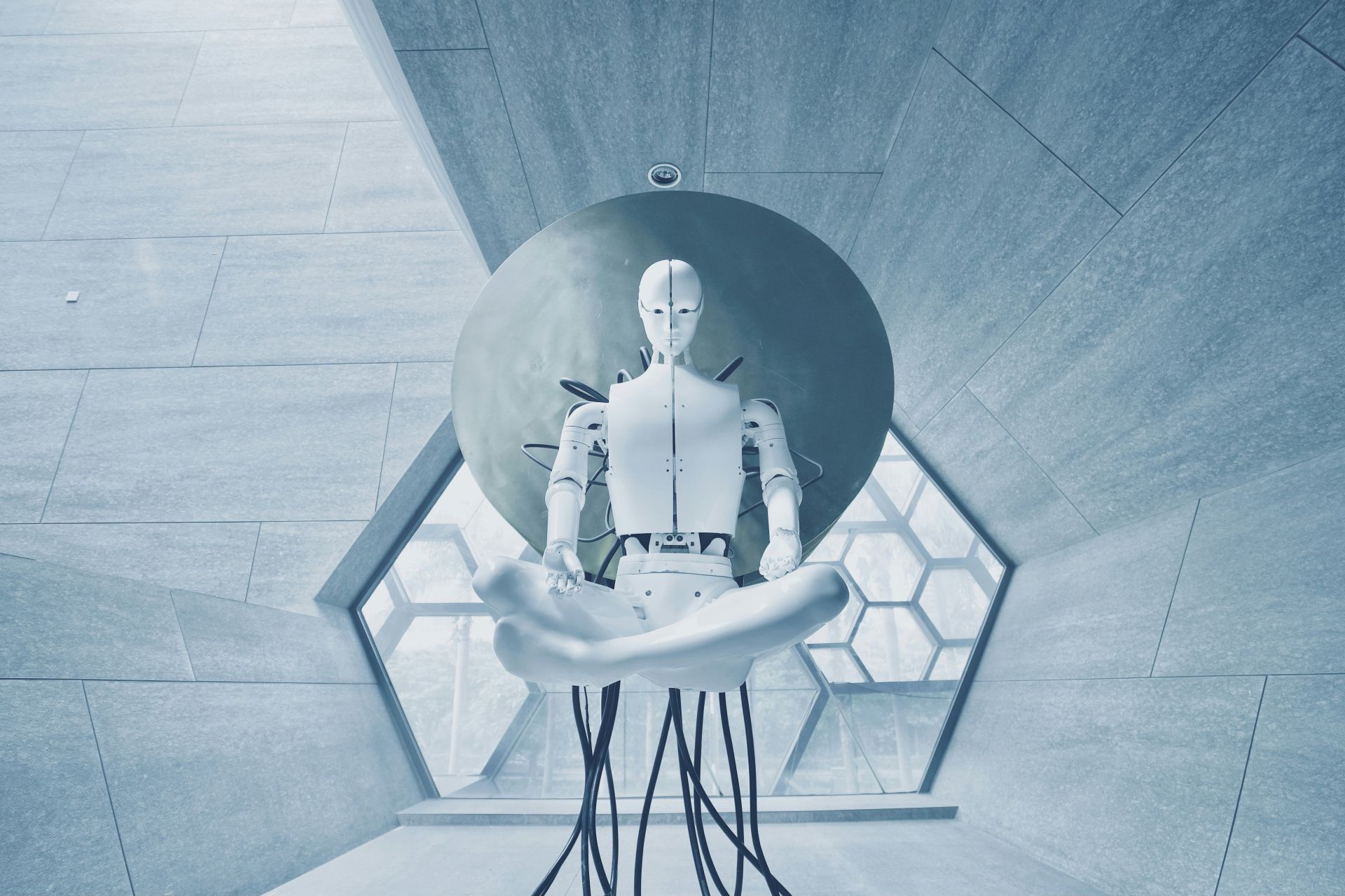If you're a Terminator fan, you've probably heard stories about how artificial intelligence (AI) will change or even take over the world. AI programs are evolving rapidly every day as the tools themselves learn and improve. The technology has already found a foothold in a variety of industries, including entertainment, analytics, and the arts, but it's not without some backlash.
AI programs for commercial use have been controversial and labeled as infringing, especially in the creative industries. This is because most generative AIs, such as Midjourney, “learn” from other people's assets and existing art, which raises questions about ownership, trust, and compensation.
It’s not just the entertainment and creative industries that are being disrupted by AI. This technology is taking the marketing industry by storm, finding potential applications in everything from statistics to copywriting. AI can be used to streamline marketing strategies, improve efficiency, and analyze data.
While some companies are already implementing AI into daily operations, others are sticking with humans for now. Artificial intelligence is definitely a game-changer for the marketing industry as it streamlines processes and can observe audience and industry trends better than the human eye. However, this technology needs further development before it is ready for takeover.

What is artificial intelligence?
Artificial intelligence is when a machine or software simulates human intelligence. These AIs can be used to perform tasks that typically require human-level intelligence, such as reading, writing, speech recognition, and visual recognition.
The field of artificial intelligence grew in popularity with the dawn of computers and science fiction media. The fantasy is quickly becoming a reality as many companies and computer science-related researchers shift their focus to and develop artificial intelligence.
Understand machine learning and deep learning
Before delving into the various ways that artificial intelligence is revolutionizing the marketing industry, it's important to understand the technology behind it. When you research artificial intelligence, you'll come across two common terms: machine learning and deep learning.
Machine learning is one of the most important A general approach to artificial intelligence. It is a type of AI that learns by being given specific data from humans and analyzes that data using algorithms. Compared to deep learning AI, it requires more “human” intervention during the learning process.
Deep learning uses complex algorithms such as: modeled after the human brain This is a special subset of machine learning. Deep learning allows artificial intelligence to learn and grow just like humans, and to analyze data with the same logical structure as humans.
It's important to understand the difference between artificial intelligence that uses basic machine learning and artificial intelligence that uses advanced deep learning because there are different use cases. For example, when predicting customer behavior, artificial intelligence developed using deep learning technology can provide more accurate results because it “thinks” like a human.

Automate content creation
When it comes to the marketing industry, it's all about content. Don't get me wrong. Content created by humans. SEO agency in Melbourne Or, there's always a place for talented freelance writing professionals. But we're already seeing large media companies deploying artificial intelligence in content creation. The Washington Post. Their “homegrown” artificial intelligence, Heliograph, has written over 850 articles for news organizations.
Artificial intelligence can not only help automate content creation, but also speed up content curation and distribution. Companies can use artificial intelligence to create and distribute content faster, while also reducing the cost of paying for human services.
The artificial intelligence used to create content such as articles and copywriting is called NLG (natural language generation).can be generated Unique, natural-sounding text For marketing companies, we provide them based on parameters such as topic, word count, and data used.
customer service bot
Artificial intelligence can be used to automate customer service, monitor reviews and feedback, and provide support services. Statistics show that 6 out of 10 consumers have interacted with his AI chatbot within the past 6 months, which is 24% higher than those who answered the phone for human support services. is. According to a study conducted by Cyara.
From a user perspective, the biggest benefits of chatbots are 24/7 support, speed, and autonomy. No need to wait during business hours and response times are better than humans. From a business perspective, it also saves time and money on paying human support teams, and improves customer satisfaction because support is available whenever you need it.
Beyond the marketing industry, many Australian companies are deploying AI-powered chatbots, from telecoms to healthcare to education. Great examples include his Optus for customer support and Healthdirect Australia's chatbot that helps patients understand their symptoms and seek professional guidance.
Predict customer behavior
When it comes to marketing, understanding your audience can be the difference between a successful campaign or a failed one. Unlike humans, artificial intelligence uses real-time data and statistics to operate 24/7, analyze industry trends and changes in consumer habits, and provide accurate information at a level impossible to humans. It can provide customer behavior predictions.
Technology and artificial intelligence have evolved to the point where data can be quickly consumed and analyzed at a rate that is impossible for humans. For example, Facebook and Google Ads are great examples. Companies use technology not only to analyze data from millions of users a day, but also to use that data to tailor advertising and personalize products to users.
Analyze large amounts of data
In this digital age, nothing is more valuable and important than data. But what do you do once you have data? Data is essential for every industry and business to learn more about what potential consumers, current audiences, and customers want.
The biggest problem at the moment is that processing all the data without the help of technology is time consuming and inefficient. By processing large amounts of data in real time, artificial intelligence can streamline the process of providing accurate reports and predictions. Due to its versatility and providing insight into marketing trends, it is quickly becoming a game changer and shaking up the marketing industry.
Fraud detection
AI is currently changing the game in the field of fraud detection, which extends to the marketing industry. AI-powered fraud detection is more powerful than typical fraud detection strategies, stopping fake email addresses from signing up for campaigns, preventing fake e-commerce, and protecting both businesses and customers. It can be used to assist.
Campaigns, proposals and mockups
Gone are the days when you had to spend hours or days creating a campaign or pitching an idea. With generative AI, you can mock up and copy designs in less than an hour. A good example is his ChatGPT. ChatGPT can easily export all the text for your marketing campaign by simply entering information from the user about the product, target audience, and word count.
Artificial intelligence has become a force to be reckoned with and is already having a disruptive impact on the marketing industry. It is a tool that can be used for a wide range of purposes, from creating copy and designs to analyzing user data. Although AI tools and programs are still in their infancy, they are used across industries and are sure to grow in the coming years.
Featured image credit: Lukas Blazek/Unsplash


